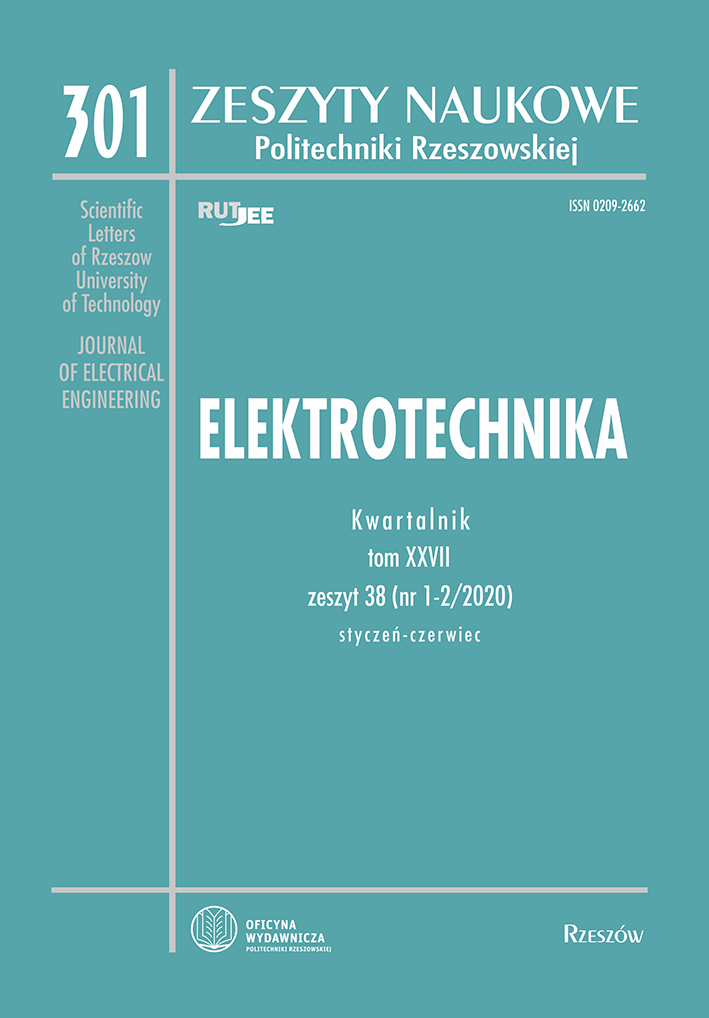Abstract
In the paper is presented review of some approaches corelated with subject of using fractional derivatives in control system theory. Popular algorithms used in the industry are presented, along with relating designing methodology. Using of fractional derivatives calculations is relatively new concept, but constantly getting increasing interest. Deliberation in recent years indicate that many scientific problems like thermodynamic or biology problems can be well considered and modeled by fractional order derivatives. On the market there is available tools that support a processes of identification and regulators designing, based on experimental data. One of such tools are toolbox CRONE for MATLAB, which contains three modules: mathematical, identifying, system control designing. That toolbox allows implementation of CRONE regulators with different level of complexity. Other tool is FOMCON, which also is a toolbox for MATLAB and it is based on already existed toolbox FOTF. FOMCON allows to identifying of control system and PIλDµ regulator designing. This article is aiming to present current state of art, discussion about existing tools and concepts correlated with fractional order derivatives and their usage in control system theory, like: gamma function, definition of fractional derivative, Laplace transform and basics of control system theory.
References
[2] Tepljakov A., Fractional-order Modeling and Control of Dynamic Systems,
Springer, London, 2017. Modelowanie układów sterowania z użyciem pochodnych ułamkowych 49
[3] Milici C., Draganescu G., Machado T. J., Introduction to Fractional Differential Equations, Springer 2019.
[4] Podlubny I., Fractioanl-order Systems and Fractional-order Controllers, OLYMPIA s.r.o., Koszyce 1994.
[5] Malti R., Victor S., CRONE Toolbox for system identification using fractioanl differentiation models, Symposium on System Identification, Beijing, 2015.
[6] Tan N., Yuce A., Deniz N.F., Teaching fractional order control systems using interactive tools, The Eurasia Proceedings of Educational & Social Sciences, 2016.
[7] Chen Y., Petras I., Xue D., Fractional Order Control – A Tutorial, American Control Conference, St.Louis, 2009.
[8] Dulau M., Gligor A., Dulau T.M., Fractional Order Controllers versus Integer Order Controllers, 10th International Conference Interdisciplinarity in Engineering INTER-ENG, 2016.
[9] Tepljakov A., Fractional-order Calculus based Identification and Control of Linear Dynamic System, Tallinn 2011.
[10]Oustaloup A., Mathieu B., Identification of non integer order system in the timedomain, IEEE-CESA ’96 SMC IMACS Multiconference, 1996.
[11]Trigeassou J., Poinot T., Oustaloup A., Levron F., Modelink and identification of a non integer order system, ECC, Karlsruhe, Germany, 1999.
[12]Malti R., Victor S., Oustoulap A., Advances in system identification using fractional models, Journal of Computational and Nonlinear Dynamics, 2008.
[13]Sikora R., Pawłowski S., O pewnych aspektach stosowania pochodnych ułamkowych w elektrodynamice, Przegląd elektrotechniczny R.94 nr 1.2018.
[14]Kaczorek T., Dzieliński A., Dąbrowski W., Łapatka., Podstawy teorii sterowania, WNT, Warszawa, 2013.
[15]Amborski K., Marusak A., Teoria sterowania w ćwiczeniach, PWN, Warszawa, 1978.
[16]Wysocki M., Sterowanie Wielowymiarowe, Oficyna wydawnicza PRz, Rzeszów, 2004.





